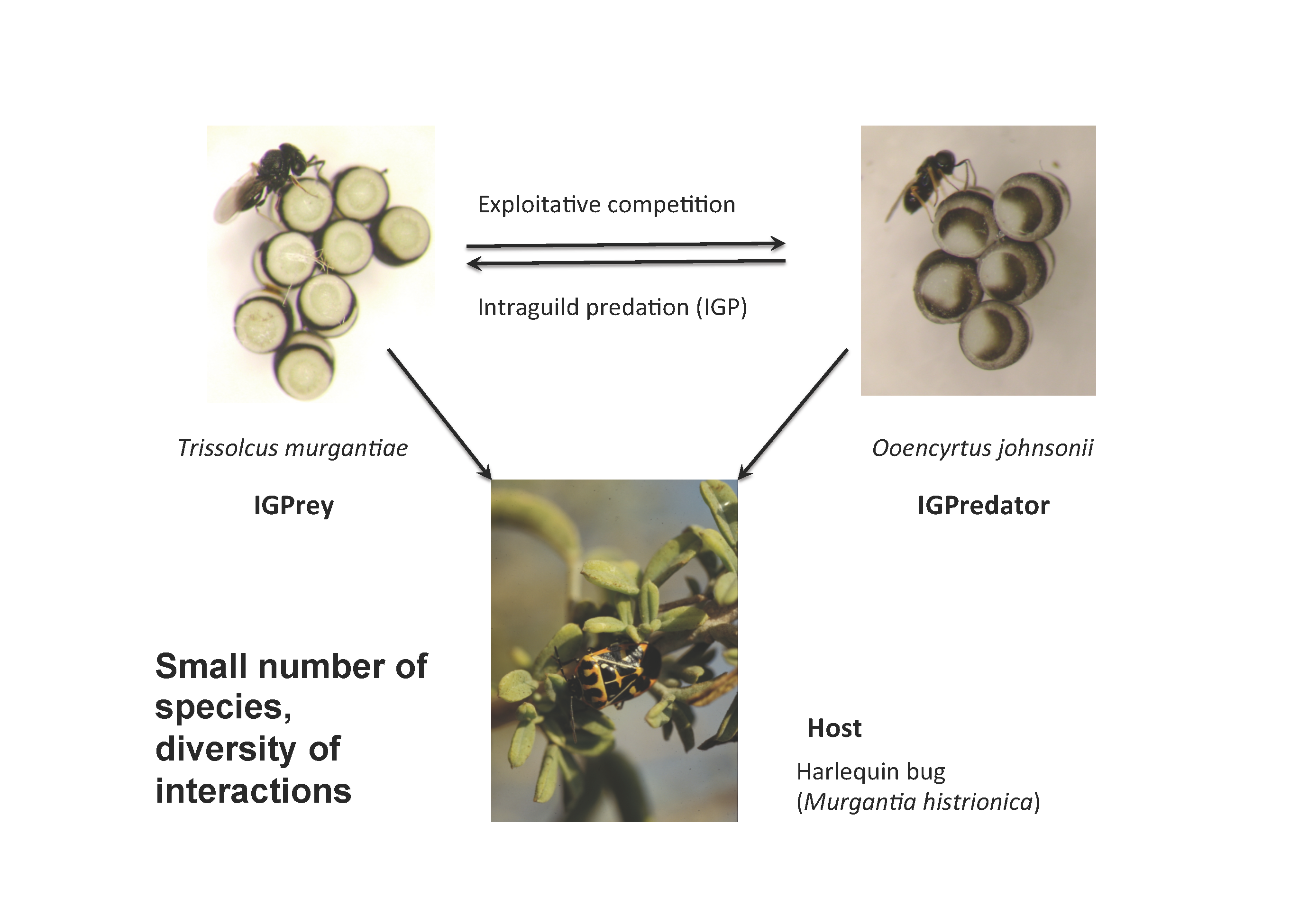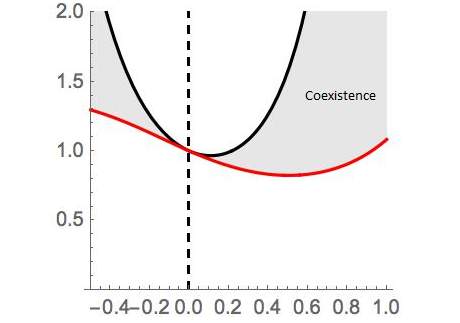The Amarasekare Lab
UCLA Department of Ecology and Evolutionary Biology
Opportunities
Lab Openings
We are always on the lookout for highly motivated students to join the lab.
Graduate Students
Mentoring philosophy
I am interested in a broad range of question in ecology and evolution. My philosophy is to encourage students to take an integrative and quantitative approach to research. I place great emphasis on clarity of thinking in developing research that is strongly conceptual and rigorous in execution. I value independent thinking and encourage students to develop their own research projects rather than work on my own projects.
My approach to training students to a large degree parallels my approach to research. The real training for students, particularly at the graduate level, comes from identifying interesting questions and learning how to go about answering them. Once the solutions are at hand, it is time to step back and look at how one's results fit into the larger scheme of things. This duality of approach encourages both depth of analysis and breadth of perspective; it also encourages a degree of introspection about the quality and utility of one's science that would otherwise not be possible. I do not require students to study particular conceptual issues or particular taxa. What I look for is a passion for biology, and willingness for quantitative reasoning.
Diversity and inclusion
I am strongly committed to promoting diversity at all levels of academic activity. I am particularly interested in increasing the representation of women and minorities in the field of Mathematical Biology. As has long been common in Mathematics and Physics, Mathematical Biology is severely under-represented by women and persons of color. As someone who has succeeded in this field and made important contributions to it, I am committed to working towards increasing ethnic and gender diversity in this important subdiscipline.
I have a strong record in mentoring women and under-represented minorities, an activity I began during my graduate student days. Throughout my career I have made special efforts to encourage female and minority students to engage in research with a strong quantitative emphasis, through extensive training in both the conceptual underpinnings of research in ecology and evolution and the mathematical/statistical skills required to conduct conceptually-driven research. It is my belief that efforts to increase gender and ethnic diversity in fields such as Mathematical Biology, starts at the undergraduate level. I make special efforts, through both teaching and mentoring, to instill in undergraduates the important role that mathematics and statistics play in addressing not only basic questions in ecology and evolution, but also applied issues of biomedical (epidemiology and novel pathogens) and environmental (conservation, climate change) importance. I attempt to show that integrating biology and mathematics is an exciting intellectual challenge, which requires not so much the mastery of mathematics as the biological insight into what questions are of fundamental importance. \textit{I find that this emphasis on biological insight as opposed to technical skill is crucial in getting students, both undergraduate and graduate, interested and engaged in developing research with a strong quantitative focus.} This is particularly important in increasing female and minority representation in Mathematical Biology, because most students, particularly those from disadvantaged backgrounds, are discouraged from pursuing research in this area because of their perception that they lack the mathematical expertise required to succeed in such a field. My efforts have led to a substantial number of female and minority students conducting high quality research in mathematical biology.
Undergraduate Students
We conduct theoretical and empirical research on a range of topics including population dynamics, species interactions, life history theory and evolution and disease ecology. Through investigations of host-parasite and pest-enemy interactions and temperature effects on life history traits, population persistence and species diversity, our work has important practical applications for invasion ecology, biological pest control and the impact of climate warming on biodiversity. Please read the Research section of my web page for a detailed description of ongoing projects in the lab.
Mentoring philosophy
I am strongly committed to undergraduate mentoring, because I believe that it is only through early training in quantitative reasoning that one can contribute towards producing those exceptional scientists who go on to revolutionize their fields. My philosophy with undergraduate mentoring is to inspire students to conduct conceptually oriented research with a strong mathematical/quantitative component, with emphasis on the integration of theory and data. I encourage students to pursue their independent projects, broadly related to my research interests, most frequently through the Honors Research sequence (EEB 198A-D).
Mentoring record
I have a strong record of undergraduate mentoring, which I consider to be my proudest achievement. Since 2007 I have mentored 32 undergraduates, 21 of whom have conducted Honors research projects under my supervision and five were supported by Research Experience for Undergraduates (REU) supplements to my NSF grant. \textit{Ten of the Honors students completed the entire four-quarter sequence of the Honors program.} All these students have presented research posters at the Dean's Science day and the EEB Research Symposium. David Kidd has a first-authored paper in the Journal of Animal Ecology (the subject of an in-focus article), Romina Sifuentes has a co-authored paper in Functional Ecology, and Erin Berlin, Kimberly Dolphin, Joanna Heyer, Brittney Kim, Alice Leung and Jamie-Lou Sabellon are co-authors of another paper in Functional Ecology. Recent Honors students Jason Pan and Daniel Smith are completing manuscripts that will be submitted to Ecology and the American Naturalist.
Five students who conducted Honors research (Romina Sifuentes, Martin Sahakyan, David Kidd, Tinh Ton and Daniel Smith) won the Undergraduate Research Prize in Ecology and Evolution at UCLA (2011, 2011, 2012, 2015 and 2016), and five (David Kidd, Sandra de Mel, Caleb Beckett, Daniel Smith and Katherine Zhou) won the prestigious Whitcome summer research fellowship (2011, 2012, 2014, 2015 and 2016). Honors student Alice Leung participated in the CARE scholars program in 2012 and 2013. The students who conducted empirical research learned to relate experimental results to field-observed patterns, thus making the link between individual-level phenomena such as searching and oviposition behavior with population-level patterns of species coexistence. The students who conducted theoretical research mastered the analytical and numerical methods required to develop mathematical models of species interactions. This training will be invaluable to several students who are planning graduate studies in ecology.
Diversity and inclusion
I am strongly committed to promoting diversity at all levels of academic activity, from undergraduates to professors. I am particularly interested in increasing the representation of women and minorities in the field of Mathematical Biology. As has long been common in Mathematics and Physics, Mathematical Biology is severely under-represented by women and persons of color. As someone who has succeeded in this field and made important contributions to it, I am committed to working towards increasing ethnic and gender diversity in this important subdiscipline.
I have a strong record in mentoring women and under-represented minorities, an activity I began during my graduate student days. Throughout my career I have made special efforts to encourage female and minority students to engage in research with a strong quantitative emphasis, through extensive training in both the conceptual underpinnings of research in ecology and evolution and the mathematical/statistical skills required to conduct conceptually-driven research. It is my belief that efforts to increase gender and ethnic diversity in fields such as Mathematical Biology, starts at the undergraduate level. I make special efforts, through both teaching and mentoring, to instill in undergraduates the important role that mathematics and statistics play in addressing not only basic questions in ecology and evolution, but also applied issues of biomedical (epidemiology and novel pathogens) and environmental (conservation, climate change) importance. I attempt to show that integrating biology and mathematics is an exciting intellectual challenge, which requires not so much the mastery of mathematics as the biological insight into what questions are of fundamental importance. \textit{I find that this emphasis on biological insight as opposed to technical skill is crucial in getting students, both undergraduate and graduate, interested and engaged in developing research with a strong quantitative focus.} This is particularly important in increasing female and minority representation in Mathematical Biology, because most students, particularly those from disadvantaged backgrounds, are discouraged from pursuing research in this area because of their perception that they lack the mathematical expertise required to succeed in such a field.
My efforts have led to a substantial number of female and minority students conducting high quality research in mathematical biology. Of the 32 undergraduates I have mentored at UCLA, 18 are female and eight are under-represented minorities. Six of the female students (three minority) have co-authored two papers in Functional Ecology, and three female students (both from under-represented minorities) won the Undergraduate Research Prize in Ecology and Evolution at UCLA and the Whitcome Summer Research Fellowship.
Current Projects
We are conducting a variety of projects both empirical and theoretical. These include experimentally quantifying the thermal reaction norms of the harlequin bug and its parasitoids, theoretical research on the effects of climate warming on phenological shifts, northward shift of species' distributions and host-vector-pathogen interactions. Please refer to the Research page for more details.

